AMEY MILLER | Chicago: A Commonplace Novel
|
|
I often heard him offer even harsher criticism.—What’s so difficult in writing about how an officer fell in love with an aristocratic lady?—he would say—There’s nothing
difficult in it and above all—nothing good in it. Vile and useless!
I am completely certain that if my father could have, he would have long ago destroyed that novel, which he disliked and rejected.
Lev Tolstoy, quoted and commented upon by his
son Ilya, in Tolstoy, My Father: Reminiscences
On February 24, 1870, Tolstoy’s wife Sonya wrote in the notes she kept about her husband's writing that T. had been thinking of constructing a story about a woman from the highest society who had “lost herself.” He said his problem was to make this woman “only pitiful, not guilty.”
|
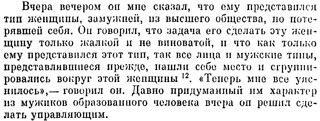
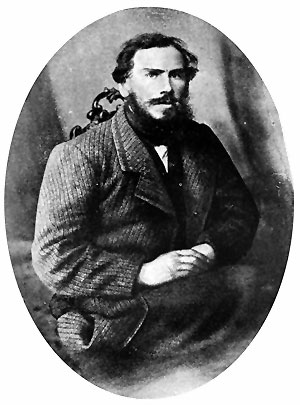 L. N. TOLSTOY, 1862 L. N. TOLSTOY, 1862
|
|
Yesterday evening he told me that he
envisioned a type of a woman, married, from the highest society, who has lost herself. He said that his task is to make this woman appear only pitiful, not guilty, and that as soon as he envisioned this woman, all the other characters, inlcuding the male ones, found their places grouped around this woman. “Now everything has become clear to me,” he said. Yesterday he decided to make the long ago imagined character, an educated peasant, into a steward.
[February 24, 1870
Sonya’s diary]
|
In 1872, Anna Pirogova, the mistress of Tolstoy’s neighbor, A. N. Bibikov, committed suicide by throwing herself under a train, after writing her lover a note which he did not receive in time. She was reportedly jealous over Bibikov’s impending marriage to the family governess. It happened on the 4th of June at 7PM: a very well-dressed woman arrived at the Yasenki Station, made the sign of the cross over herself, and then threw herself under the train, cutting herself in half. Tolstoy went to see her body.
|
1870
5th of June. Today is the fourth day since I weaned Ljovushka. I felt sorry for him more than for all other children. I blessed him as I was taking my leave of him, and I cried, and prayed. It is very hard, this first complete
separation from one’s child. It must be, I am pregnant again. With each new child I give up living for myself more and more and humble myself under the yoke of troubles, worries,
illnesses and years.
|
|
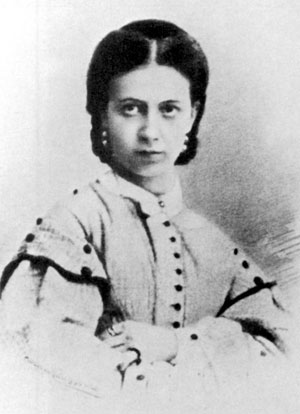
S. A. (BEHRS) TOLSTAIA, 1862
|
In or about March of 1873, he began the novel which was to become Anna Karenina, abandoning two other projects he was working on, a novel set at the time of Peter the Great, and a primer for children. He wrote his friend Strakhov that his opening inspiration was a fragment of Pushkin’s “the guests were gathering at the dacha.” 1
|

|
1. dacha: Russian country house. Amy Mandelker summarizes the fragment: “The guests discuss the
adulterous behavior of a society lady and speculate on her future. The fragment concludes with the fallen woman abandoned by her lover and contemplating suicide.”
2. Note that the Russian verb here specifies that the guests arrived, not on foot, but by some form of
conveyance. A reader of Russian will also note that in the quote on the next page, Tolstoy slightly
mis-remembered the Pushkin line, using the verb ‘sobiralis,’ which also means gather, but without specifying conveyance. The edition used by Tolstoy was that edited by P.V. Annenkov (1855, St. Petersburg) a copy of which was able to be obtained through the miracle of interlibrary loan at this local public library!
|
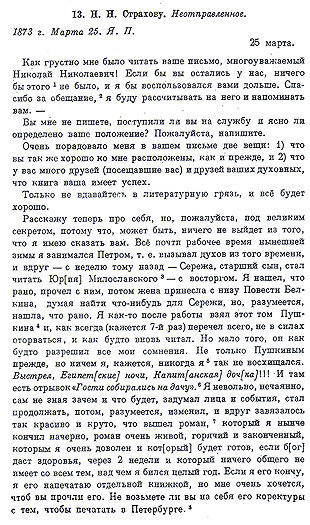
|
|
TO N.N. STRAKHOV
March 25, 1873 Yasnaya Polyana
[not sent]
How distressing it was for me to read your letter, much respected Nikolai Nikolaevich! If you had stayed with us, none of that would have happened, and I would have had the pleasure of your company longer. Thank you for the promise, I will count on it and remind you.
You have not written to me whether you have started to work again and whether your condition has been clearly diagnosed. Please write and tell me.
Two things in your letter pleased me very much: 1) that you are so well disposed towards me, as before, and 2) that you have many friends (visiting you), and, given that your friends are such spiritual people, your book will be successful.
 |
| Only do not indulge in literary dirt and all will be well. |
I will tell you now about myself, but, please, this is a great secret, because maybe nothing will come of what I am going to tell you. For almost all of my working time this winter I have been studying Peter the Great, trying to evoke the spirit of his time, when suddenly—only a week ago—Seryozha, my oldest son, began to read Iurii Miloslavskii—with delight. I found that he was young for it and began to read it with him; then my wife brought upstairs The Tales of Belkin, thinking to find something in it for Seryozha, but of course it was too soon for that too. After work, for some reason, I picked up this volume of Pushkin and, as always (it seems this is the seventh time) reread all of it, not having the strength to tear myself away, and as though reading it for the first time. After reading only a little, it was as though it had resolved my doubts. It seems that I have never been so delighted with, not only Pushkin, but anything at all. “The Shot”, “Egyptian Nights”, “The Captain’s Daughter”!!!! And there was a fragment “The guests were gathered at the dacha.”
|
| Involuntarily, unexpectedly, without knowing myself why or what would come of it, I thought up characters and events, continued, then of course altered it, and |
suddenly it came together so beautifully that a novel emerged, which I have finished today in draft form, a novel very lively, fiery and accomplished, with which I am very pleased and which will be ready, if God grants me health, in two weeks, and which has nothing in general to do with the project on which I have labored all year. If I finish it, I will publish it as a separate little book, but I want very much for you to have read it first. Would you perhaps be willing to read the proofs, with a view to its being published in Petersburg.
 |
|
 |
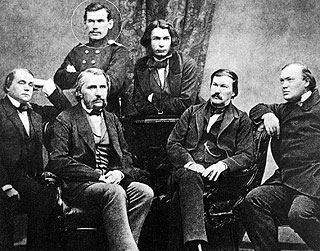 |
THE AUTHORS OF
THE CONTEMPORARY (SOVREMENNIK)
left to right (seated), Goncharov, Turgenev, Druzhinin, Ostrovsky;
standing, Tolstoy, Grigorovich (1856) |
|
 |
| So, then, later, Tolstoy wanted to |
destroy the novel that detailed the suicide of his beautiful heroine, the repository of so much of his own vitality, physicality, despair, and crazed thin-skinned orneriness.
But my Hanna’s not going to commit suicide, okay? I know her that well. She’s dutiful, a goody two shoes: she’s bringing the Message To Garcia my
summer camp director used to tell us about as a way of inciting us to do the right thing. There was another story about a man not being able to tell a black horse apart from a white horse. But wouldn’t it count as important, as Hanna mimes putting one foot in front of the other, that she’s more truly slowed to a halt?
She won’t tell you this, because she doesn’t know it.

|
|
 |
|
|
|
| |
|
|
|
| |
|
|
|
| |
|
|
|
Contributor’s
notes
Cover Page
Acknowledgments
return to top
|